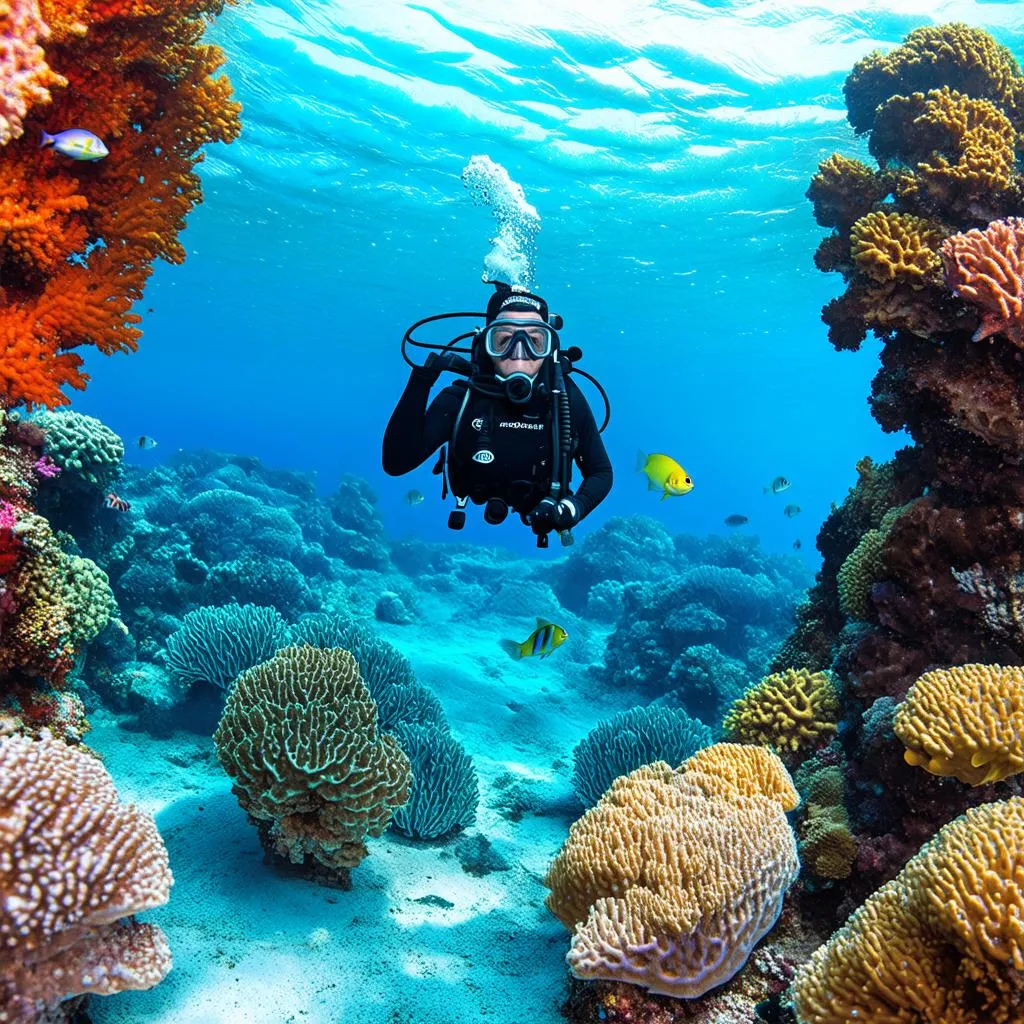Have you ever been swimming in a pool or the ocean and wondered if the fish can hear you splashing around? Or maybe you’ve held your breath and dipped your head under the water, amazed by how different everything sounds? Well, you’re not alone! The question of whether sound travels through water is a common one, and it leads to a fascinating world of underwater acoustics. 🎧
Yes, Sound Travels Through Water…But Differently!
The short answer is YES, sound definitely travels through water. In fact, it travels even BETTER and FASTER than it does through air! But there’s a catch – it doesn’t sound quite the same.
Think about how differently things sound when you’re underwater compared to when you’re on dry land. Everything seems muffled, right? That’s because of the way water affects sound waves.
How Does Sound Travel Through Water? 🌊
Sound travels in waves, and these waves need a medium to move through. When you speak or make a noise in the air, you’re creating vibrations that travel through the air molecules to your ears.
Water is much denser than air, meaning its molecules are packed more tightly together. This density allows sound waves to travel faster and further in water than in air.
A Whale of a Tale: Sound and Marine Life 🐳
Did you know that many marine animals rely on sound to navigate, find food, and communicate with each other? Whales, for example, use echolocation, sending out sound waves and listening for the echoes to “see” in the dark depths of the ocean.
Imagine yourself snorkeling near the Great Barrier Reef, the vibrant coral teeming with life. Suddenly, you hear the haunting song of a humpback whale in the distance, a sound that can travel for miles underwater. That’s the power of sound in the ocean!
Fun Fact: The Speed of Sound in Water 💨
While the speed of sound in air is approximately 343 meters per second, it zooms along at about 1,480 meters per second in water! That’s more than four times faster! 🤯
Planning Your Underwater Adventure? 🐠
If you’re planning a scuba diving trip to explore the mysteries of shipwrecks off the coast of Florida or are simply curious about the wonders of sound underwater, remember this:
- Sound travels differently underwater, so be prepared for a unique auditory experience.
- Be mindful of the noise you make while swimming or boating, as it can impact marine life.
For more travel tips and fascinating insights into the world around us, be sure to explore other articles on travelcar.edu.vn!
 Sound Waves Underwater
Sound Waves Underwater
FAQs About Sound Underwater 🤔
Q: Can humans talk underwater?
A: Not in the traditional sense. While we can make sounds underwater, our vocal cords aren’t designed to form words effectively in such a dense medium. That’s why scuba divers use hand signals or specialized underwater communication devices!
Q: How do submarines use sound?
A: Submarines use sonar (sound navigation and ranging) to navigate and detect objects underwater. They emit sound pulses and analyze the echoes that bounce back, similar to how bats use echolocation.
Q: Are there any places where sound doesn’t travel well in water?
A: Yes, the ocean isn’t uniform. Factors like temperature, salinity (saltiness), and pressure can affect how sound waves travel. In certain areas, like the SOFAR channel, sound can travel for incredibly long distances due to unique oceanographic conditions.
Explore More Travel Wonders With Travelcar.edu.vn!
Want to learn more about the fascinating ways sound influences our world, from the whispering galleries of St. Paul’s Cathedral in London to the echoes in the Grand Canyon? Dive into our other articles on travelcar.edu.vn! We’ll take you on a journey through the science and wonder of sound, all while inspiring your next travel adventure.
 Scuba Diver Exploring Coral Reef
Scuba Diver Exploring Coral Reef
Let us know in the comments below what other travel-related questions spark your curiosity!